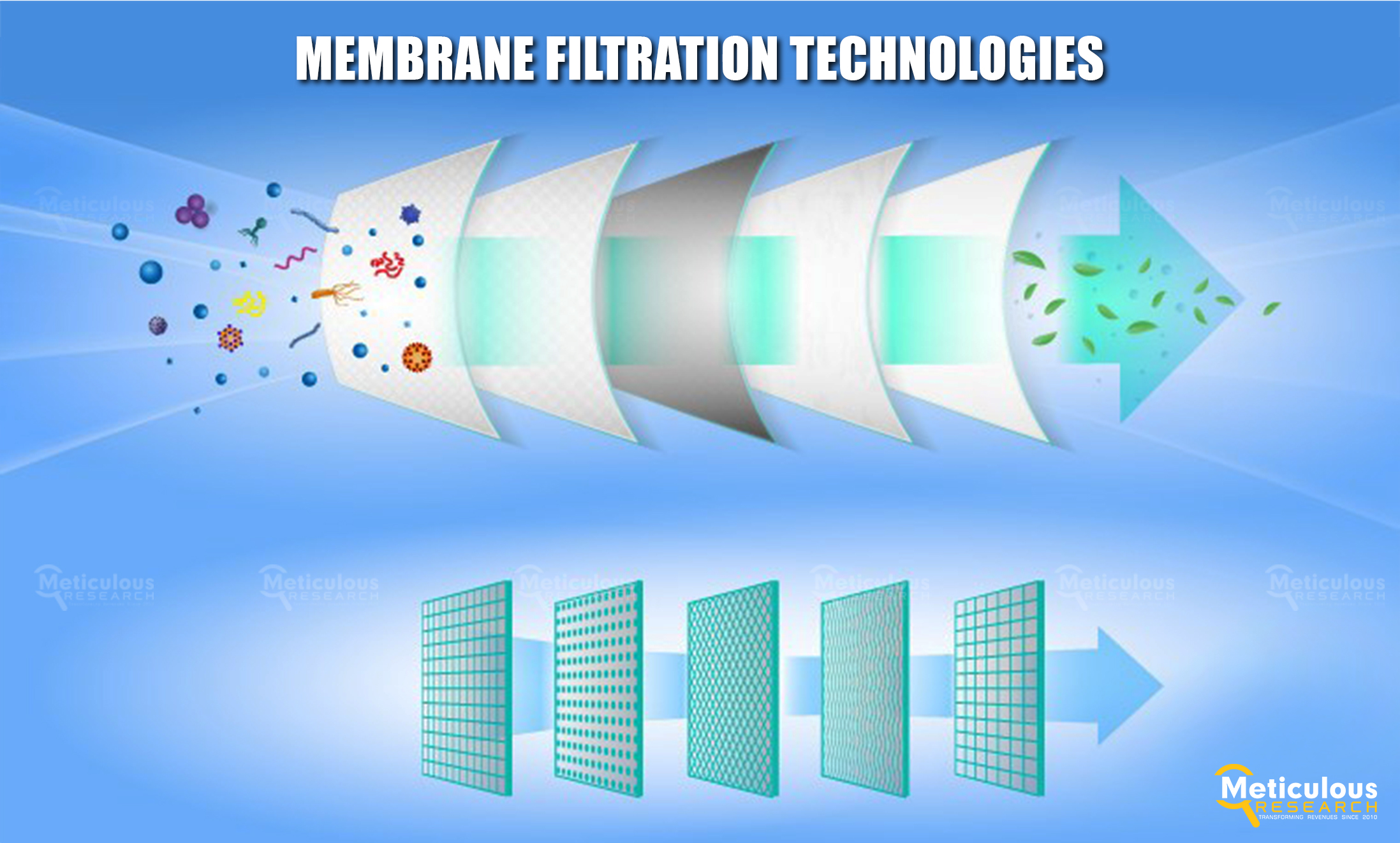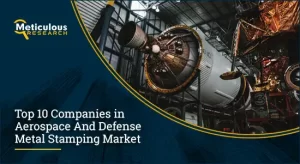
The Membrane Filtration Technologies Market is projected to reach $22.2 billion by 2030, at a CAGR of 6.9% from 2023 to 2030.
Water is an indispensable resource in food processing, playing critical roles at various stages, including washing, cleaning, preparation, cooking, and cooling. The food and beverage (F&B) industry is among the largest consumers of water globally, relying on substantial quantities for production. This high demand for water not only leads to significant wastewater generation but also raises concerns about environmental sustainability, contributing to issues like water scarcity and pollution. As a result, regulatory pressures are mounting on the F&B industry to adopt sustainable water treatment technologies.
Water Consumption and Environmental Impact in the F&B Industry
The vast water consumption in the F&B sector has considerable implications for the environment. The combination of high water use and wastewater generation can deplete local water sources, exacerbate pollution, and impact aquatic ecosystems. Consequently, there is an urgent need for the industry to implement effective water treatment solutions to mitigate these adverse effects and comply with increasingly stringent regulations.
To address these challenges, many food and beverage companies are turning to advanced water and wastewater treatment technologies, particularly membrane filtration. These technologies effectively remove impurities, bacteria, and other contaminants from water, ensuring the quality necessary for safe food production while meeting regulatory standards. Common methods employed in the industry include reverse osmosis, ultrafiltration, microfiltration, and nanofiltration membranes.
Download Sample Report Here @ https://www.meticulousresearch.com/download-sample-report/cp_id=5536
The Rising Demand for Membrane Filtration Technologies
The pressing need for sustainable practices in the F&B industry is driving the demand for membrane filtration technologies. These systems offer several advantages:
Efficiency in Water Treatment: Membrane filtration technologies are highly effective in removing contaminants, providing purified water that meets the stringent quality standards required in food processing.
Reduced Wastewater Generation: By enhancing water recovery rates, membrane technologies can significantly decrease the volume of wastewater produced, contributing to more sustainable water management practices.
Compliance with Regulations: As regulations around water usage and wastewater management tighten, membrane filtration systems help companies comply with legal requirements while maintaining product safety and quality.
Addressing Waterborne Diseases with Membrane Filtration
Another crucial factor driving the growth of membrane filtration technologies is the increasing prevalence of waterborne diseases. Microorganisms, biotoxins, and toxic contaminants in water are responsible for diseases such as cholera and schistosomiasis. Climate change has further exacerbated this issue by increasing the frequency and severity of extreme weather events, elevating the risks of waterborne diseases, especially in developing regions.
The most common consequence of waterborne diseases is dehydration due to electrolyte loss from vomiting or diarrhea. This public health challenge emphasizes the importance of effective wastewater treatment technologies. Membrane filtration technologies play a vital role in controlling the transmission of waterborne diseases by effectively removing hazardous biological contaminants from water sources. By implementing these advanced filtration systems, the F&B industry can contribute to public health efforts and minimize the risks associated with contaminated water.
Browse in Depth : https://www.meticulousresearch.com/product/membrane-filtration-technologies-market-5536
Report Summary:
| Particular | Details |
| Number of Pages | 238 |
| Format | |
| Forecast Period | 2023-2030 |
| Base Year | 2022 |
| CAGR | 6.9% |
| Estimated Market Size (Value) | $22.2 billion by 2030 |
| Segments Covered | By Type
By Construction
By Membrane Material
By Sector
By Application
By Geography
|
Quick Buy: https://www.meticulousresearch.com/Checkout/55486913
Conclusion
As the food and beverage industry continues to grapple with the dual challenges of high water consumption and environmental sustainability, membrane filtration technologies emerge as a crucial solution. These technologies not only facilitate compliance with regulatory demands but also help mitigate the environmental impact of food production. Furthermore, the growing prevalence of waterborne diseases underscores the importance of maintaining water quality through effective treatment solutions.
In conclusion, the adoption of membrane filtration technologies is not merely a response to regulatory pressures; it represents a commitment to sustainable practices that safeguard public health and the environment. As the market for these technologies continues to expand, the food and beverage industry can take significant strides towards achieving a more sustainable future.
Contact:
Meticulous Market Research Pvt. Ltd.
1267 Willis St, Ste 200 Redding,
California, 96001, U.S.
USA: +1-646-781-8004
Europe : +44-203-868-8738
APAC: +91 744-7780008
Email- sales@meticulousresearch.com
Visit Our Website: https://www.meticulousresearch.com/
Connect with us on LinkedIn- https://www.linkedin.com/company/meticulous-research





